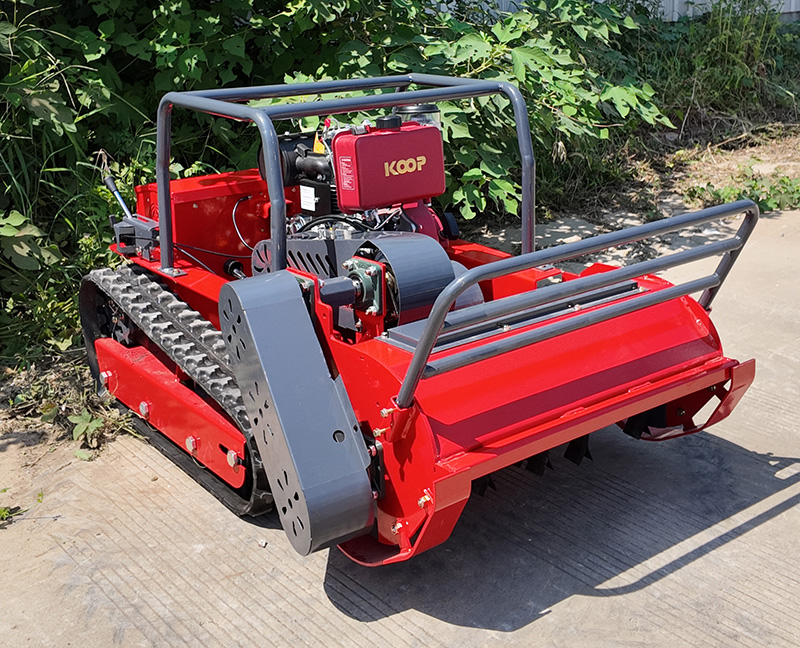Eco-Friendly Lawn Mowers Lead the Green Revolution in Modern Agriculture
In the age of sustainability and environmental awareness, eco-friendly lawn mowers are at the forefront of a green revolution transforming modern agriculture. As the world faces challenges like carbon emissions, soil degradation, and rising fuel costs, farmers and agricultural innovators are turning toward cleaner, smarter, and more energy-efficient machinery. The shift from traditional fuel-powered mowers to electric, hybrid, and solar-assisted models is redefining how we maintain farmlands and promote ecological balance.
The rise of eco-friendly mowing solutions isn’t just a technological trend—it’s a global movement toward responsible agriculture. Whether it’s small-scale farms or large agricultural enterprises, sustainable mowing systems are helping to cut operational costs, minimize pollution, and protect biodiversity in rural ecosystems.
The Evolution of Agricultural Mowing Technology
For decades, farmers relied on diesel or gasoline-powered mowers to manage grasslands, crop peripheries, and pasture areas. While powerful, these machines contributed to air pollution, noise, and fuel dependency. Recent advances in electric motors, battery capacity, and renewable energy integration have changed the landscape completely.
Modern eco-friendly lawn mowers utilize high-efficiency brushless motors, long-lasting lithium-ion batteries, and even solar panels to achieve near-zero emissions. Some models integrate GPS and AI-based navigation for precise mowing, saving both time and energy. This evolution aligns perfectly with the goals of sustainable farming—maximizing productivity while minimizing ecological footprint.

Q&A: Understanding the Impact of Eco-Friendly Lawn Mowers
Q: Why are eco-friendly mowers important in agriculture?
A: They help farmers reduce carbon emissions, lower noise pollution, and save money on fuel, all while promoting healthier soil and air quality.
Q: Are electric mowers powerful enough for large farms?
A: Yes. Modern electric and hybrid mowers are designed with advanced torque systems and battery management, capable of handling large-scale agricultural fields efficiently.
Q: Can solar-powered mowers operate in cloudy conditions?
A: Absolutely. Solar-assisted models typically store energy in batteries, allowing consistent performance even during overcast days or low-light conditions.
Economic and Environmental Benefits
Adopting eco-friendly lawn mowers offers multiple advantages that go beyond environmental protection. From an economic perspective, the cost of ownership decreases significantly over time. Electric mowers eliminate the need for fuel and require less maintenance—no oil changes, fewer moving parts, and minimal servicing compared to traditional machines.
Environmentally, the benefits are even more significant. Reduced CO₂ emissions directly contribute to global carbon neutrality goals. The quieter operation also minimizes disturbance to livestock and wildlife, promoting biodiversity within the farm ecosystem. Farmers adopting green mowing technology often qualify for government subsidies, carbon credits, or tax benefits in many countries.
Integrating Renewable Energy into Agricultural Equipment
One of the most exciting developments in agricultural technology is the integration of renewable energy sources like solar and wind power. Hybrid mowing systems now combine battery-powered performance with solar charging, making them ideal for remote locations where grid access is limited.
In many sustainable farms, solar panels are installed near barns or tool sheds, providing free and renewable energy to recharge electric mowers. This approach not only cuts costs but also ensures a fully sustainable operational cycle.
Technological Innovation: The Smart Mower Era
The digital revolution has reached agriculture, and eco-friendly mowers are benefiting from it. Smart mowers equipped with GPS tracking, automated route mapping, and AI-based obstacle detection can navigate fields autonomously. Some systems even sync with farm management software, allowing real-time tracking and scheduling based on grass growth rates and weather forecasts.
Such innovations don’t just make farming easier—they help collect data that can optimize mowing cycles, reduce unnecessary energy use, and improve field conditions over time. The combination of robotics, AI, and renewable energy is redefining what’s possible in sustainable agriculture.
Government Policies and the Global Push for Sustainability
Countries around the world are enforcing stricter emission standards for agricultural machinery. Governments in Europe, North America, and Asia are encouraging farmers to adopt electric or hybrid systems through subsidies and eco-grants. Manufacturers like John Deere, Husqvarna, and Greenworks are leading the charge by developing robust, eco-conscious machinery designed specifically for agricultural use.
Conclusion: The Future of Green Agricultural Machinery
Eco-friendly lawn mowers symbolize a crucial step in the agricultural industry’s transition toward sustainability. By combining energy efficiency, digital intelligence, and environmental responsibility, these machines are shaping a cleaner, smarter, and more productive future for farming.
As the demand for sustainable food production continues to rise, innovations like these will play a defining role in protecting the planet—one field at a time.
5. Get Your Personalized Solution Now
→ Call the selection hotline: +86 158 5359 8030 (also supports accessory customization inquiries).








